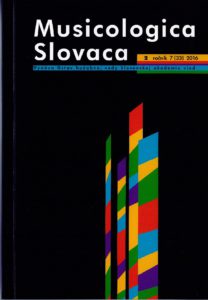K otázke rodových štúdií: Ženy v opernej a operetnej prevádzke bratislavského Mestského divadla (1886 – 1920)
On the Question of Gender Studies: Women in Opera and Operetta in the Bratislava City Theatre (1886 – 1920)
Author(s): Jana LengováSubject(s): Theatre, Dance, Performing Arts, Music, Local History / Microhistory, Gender history, History of Art
Published by: Ústav hudobnej vedy Slovenskej akadémie vied
Keywords: gender studies; profession; female singer; female composer; opera; operetta; Bratislava; theatre;
Summary/Abstract: In the light of gender studies, this paper examines how female singers and composers exercised their professions, and their social and artistic status, in the Bratislava City Theatre during the years 1886 – 1920. The source base is a study of the daily newspapers Preßburger Zeitung and Westungarischer Grenzbote. From what theatre critics wrote, it is concluded that both men and women could exercise the profession of singer with comparable success, with decisive criterion for evaluation being the singer’s performance and his/her creation of the theatrical role. A more detailed description is given of the guest performances of the singers Lujza Blaha (1850 – 1926) and Irma de Spányi (1861 – 1932). There were long-lasting prejudices against women composers. The positive reception of the premiere of the now lost opera Tamaro, by the Bratislava composer Countess Alexandrine Esterházy-Rossi, in the Bratislava Theatre (1907), is presented in the wider context of female musical creativity and contemporary domestic opera production, and also as proof of the gradual transformation of older conservative views.
Journal: Musicologica Slovaca
- Issue Year: 5/2014
- Issue No: 1
- Page Range: 66-87
- Page Count: 22
- Language: Slovak

